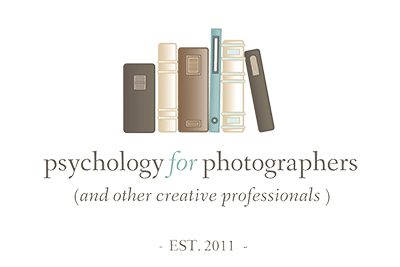The Blog Library
Making Change
It has been a few months since we’ve spoken, but I’ve been thinking about you.
Lots to say, but I’m here because I’ve realized my blog has contributed to a problem. I want to talk about it and share how I’ll be fixing it.
Psychology often puts a magnifying glass on individual people. In college and graduate school, I took community psychology classes. The goal of those was to ask, “Wait, how are communities impacting the people who live in them?”
Answering that question must include discussing racism.
As we did, I realized there were big problems with the way I’d heard racism talked about in my life leading up to that point:
Racism was often explained as basically a bad set of opinions, held by a few “bad apples,” who we shouldn’t agree with. If you hold those opinions, you’re “a racist,” if you don’t then you’re not part of the problem. Suggested solutions often centered around making sure we believe everyone is equal.
But as we delved into the research, and chronicles of personal experiences, I came to realize – wow. That’s not at all the full story on what we know about racism. Each of us personally disavowing racism is good, but it’s not everything we need to do to fix it.
For example, we can easily demonstrate in a lab that people who do not endorse racist beliefs still often make unconscious, racially-biased decisions.
Overwhelming evidence shows that we can make racially-biased judgments without meaning to, or even being aware of it.
The effects of these biases are readily seen in employment, housing, education, public service, online sales, and in the lived experiences of BIPOC (Black, Indigenous People of Color) community members.
I thought I was aware of racism before these classes. Really, I’d simply been educated by whatever had been delivered to me by K-12 school and media. And it was not nearly enough, whether the information gaps were intentional or not.
I take responsibility for that. But I felt frustrated that schools and media hadn’t presented this information everywhere.
In my personal life, I started speaking up and sharing research.
However:
This past week as I’ve borne witness to the justifiable and immense pain caused by continued racism in the United States and around the world, I have reflected afresh on ways I have contributed to that problem.
One of them concerns this blog.
How can I be upset that my earlier education didn’t give me complete information about racism, when as an educator, I turned around and also failed to share that information?
For example, I’ve taught how anchoring bias impacts how we do our pricing. I could have used that moment to educate how anchoring also creates unconscious racial bias.
I didn’t because at the time, I thought of racial bias as a different topic than business pricing strategy. But you know what? I was wrong to think this way.
- It’s wrong because racism absolutely shapes the small business world, even in ways we’re not consciously aware of.
- It’s wrong because lack of widespread knowledge of that fact is part of what keeps those biased forces in place. Not speaking up is being complicit with the problem.
- It’s wrong because I can’t have a goal of promoting the well-being of entrepreneurs if I’m not readily discussing the racial biases that directly harm the well-being of Black entrepreneurs.
- It’s wrong because conceptualizing racism as a ‘separate’ topic when it’s woven into the fabric of all aspects of life makes…absolutely zero sense.
- It’s also wrong because in failing to talk about these issues here, I was not acting as an ally. I can’t only speak up about racism in my personal life when absolutely nothing about racism is confined to the personal lives of Black colleagues. If their business is impacted, my business should be involved in the solution.
I’m deeply sorry for these and other failures. I apologize for not doing my job as an educator, and I especially apologize to all BIPOC individuals who came to my blog and found no clear evidence of understanding or solidarity here. I do stand in solidarity with you, but I don’t just want to say that, I want my actions over the next several decades to show it unequivocally.
Here are some actions I’m currently taking to begin, and I call on fellow business owners to join me.
I am:
1. Seeking out, following, and hiring educators and consultants who teach how to address racial bias in your own business, and how to use your platform to be anti-racist.
We can’t wait around for someone to show up and tell us what to do. We don’t do that in other areas of our business, and we shouldn’t here. We would never say, “I want to learn to use off camera flash, but I’ll wait until someone in my circle comes to explain it to me.” No, we’d go out, find resources, head to the library, pay for specific help, and then practice what we’d learned. We all need to approach our education about how to be anti-racist with the same commitment.
I am doing this remembering that education is not a service I expect to always be free. There are great free resources, but I am not entitled to the unpaid time and emotional labor of those most impacted by racism to help me fix it. I can budget for education here the same as any other place I need help.
Here are a handful of starter places: Dr. Tomayia Colvin is giving an anti-racism webinar for photographers on Wednesday (June 10th). It is a paid class and I will be listening. She has put together a list of resources, too.
Rachel Rodgers is hosting a free town hall on Reimagining Small Business, also on Wednesday (June 10th). She has also written this post about how to increase diversity in our business, and this post about how those trying to be anti-racist can inadvertently cause more harm.
From the fine arts world, I have appreciated the stories Kaisha S. Johnson shared here (don’t miss that bullet pointed list of anecdotes!) of how organizations get it wrong when they try to make change, and I’m taking notes on subtle things not to do.
Finally, for people who appreciate visuals, this illustration gives a great set of books to read; I’ve read my way through some of the list, and am eager to work through more.
2. Revising my blog’s editorial calendar to help close information gaps, and spotlight the contributions of others.
The goal of this blog has always been to equip creative people with psychology tools that help them navigate the world better. To do a better job of honoring that goal, I’ll include what science and experience teaches us about racism and business. Some of it may feel new or counter-intuitive upon first read, which is why it’s important to share.
I’m considering how I can highlight other voices. I’m also studying how to make sure to talk about these issues without inadvertently adding to burdens of BIPOC individuals reading them.
3. Initiating recurring donations from my business account.
I’ve realized that donating from personal accounts might be subtly reinforcing my own thinking that addressing this problem is ‘separate’ from my business, and it is not. (Note: I’m well aware that the pandemic has impacted the incomes of many reading this. I want to sensitively remind that financial support is great, but by no means the only kind of support we can offer.)
4. Blocking off time in my monthly calendar to continue to learn –
Studying best practices and other ways I can help and donate.
5. I will check in again.
Fellow entrepreneurs, I understand that the pandemic has caused serious emotional distress, brought economic hardship, canceled childcare, and made it difficult to work. I’m right there with you, and I’m drafting other resources to help with those issues as well. But the issues of racism truly merits the same after-hours attention that any urgent matter would, and meanwhile our Black community members are dealing with the double stress of both the pandemic and a host of other bias-related challenges.
Of course, no plan put in place this week will adequately address all needed change. This is going to evolve as I keep listening and learning. I’m also aware that rushing too fast to change something can mean I inadvertently perpetuate problems. I’ll be studying and learning how to do this well.
Right now I speak directly to any White allies or audience members who have been watching the news and felt overwhelmed because they don’t know what to do or say:
Please do speak up, and devote time to listening and learning how to do it in ways that truly help.
Let’s not rush to merely voice our support without deep self-reflection.
Racism isn’t just found in people’s opinions, thus, solutions will include more than just stating our opinions. We are witnessing right now the cumulative effects of a world where people make statements of support, but don’t follow up with personal reflection and action. Racism involves subconscious biases and systems, which will take some time to understand and dismantle within ourselves.
And when we speak up, let us be humble enough to listen to feedback. If you’re like most people in the P4P community, you pride yourself on being “a learner,” which means you’re humble enough to acknowledge mistakes and have the stamina to correct and keep going.
It is entirely possible that in this post, I’ve made mistakes that will cause harm to someone reading it. If someone points that out, my job is not to defend my intentions. My job is to hear the impact my words made, thank (and/or compensate) the person for expending the time and emotional labor to point it out, and then change how I do things next time.
Let’s get to work.
—
P.S. A handful of you may read this and wonder, “Wait, why is she suddenly sending this?”
There’s nothing surprising behind the scenes here. I just holed myself up in my office for several days of reading and reflection, listening to smart people talk about what equity really means, and I wanted to share some thoughts that came out of that. I hope we can all take more chances to do this inner work.


Thanks for sharing